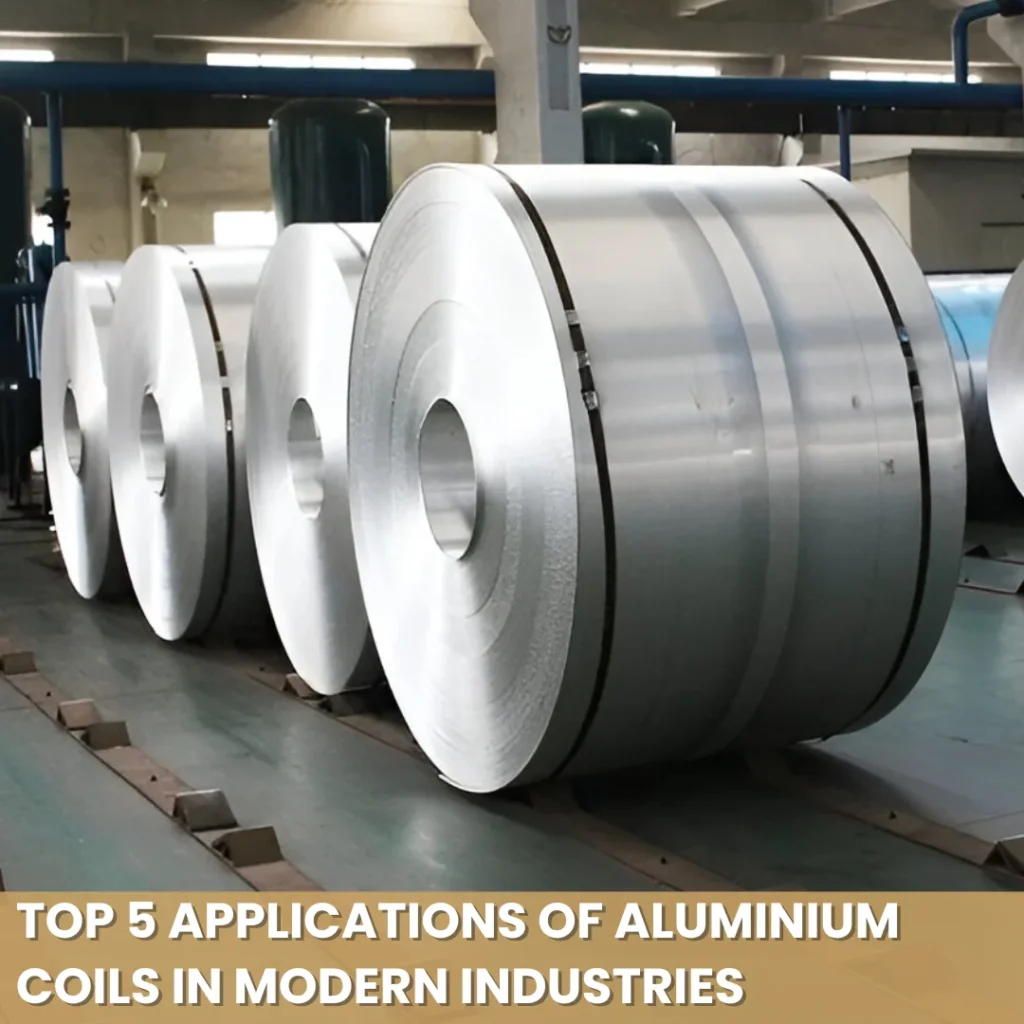
Introduction
Aluminium coils are one of the most versatile and widely used materials in modern industries. Their lightweight nature, excellent corrosion resistance, and high conductivity make them indispensable in manufacturing and construction. Industries such as automotive, construction, packaging, and aerospace rely heavily on aluminium coils for their efficiency and durability. In this blog, we will explore the top five applications of aluminium coils and why they are essential in today’s industrial landscape.
1. Automotive Industry: Enhancing Fuel Efficiency and Performance
The automotive sector is one of the largest consumers of aluminium coils. With the growing demand for fuel-efficient and lightweight vehicles, aluminium has become a preferred choice over steel. Here’s how aluminium coils contribute to the automotive industry:
- Weight Reduction: Aluminium coils are significantly lighter than steel, helping to reduce the overall weight of vehicles. This leads to improved fuel efficiency and lower emissions.
- Corrosion Resistance: Vehicles are exposed to moisture, road salt, and extreme weather conditions. Aluminium’s natural corrosion resistance ensures the longevity of car components.
- Heat Dissipation: Aluminium has excellent thermal conductivity, making it ideal for radiator and cooling system components.
- Structural Components: Car manufacturers use aluminium coils for making hoods, doors, panels, and heat shields due to their strength and flexibility.
With the rise of electric vehicles (EVs), aluminium’s role in automotive manufacturing is only expected to grow further, contributing to energy efficiency and sustainability.
2. Construction Industry: Durability Meets Aesthetic Appeal
The construction sector extensively uses aluminium coils for a variety of applications, thanks to their durability and sleek appearance. Some of the most common uses include:
- Roofing & Cladding: Aluminium coils are widely used for roofing sheets and building facades due to their weather resistance and low maintenance requirements.
- Doors & Windows: Aluminium frames are stronger and more durable than traditional wood or PVC, making them a popular choice in modern architecture.
- Insulation & HVAC Systems: Aluminium coils are used in heating, ventilation, and air conditioning (HVAC) systems due to their excellent heat transfer properties.
- Interior & Exterior Design: Aluminium panels provide a contemporary, polished look to buildings while ensuring longevity.
Its ability to withstand harsh weather conditions, combined with energy efficiency, makes aluminium a sustainable choice in construction projects worldwide.
3. Packaging Industry: Lightweight and Recyclable
Aluminium coils play a crucial role in the packaging industry, offering numerous advantages over other materials:
- Food & Beverage Packaging: Aluminium foil, derived from aluminium coils, is commonly used for food storage, keeping products fresh and extending shelf life.
- Cans & Containers: Soft drink and beer cans are predominantly made from aluminium due to their lightweight and recyclable nature.
- Pharmaceutical Packaging: Aluminium blister packs protect medicines from moisture, light, and contaminants, ensuring long-term efficacy.
- Eco-Friendly & Sustainable: Aluminium packaging is 100% recyclable, reducing environmental impact and promoting sustainable packaging solutions.
With increasing consumer demand for sustainable packaging, aluminium’s role in the industry is expanding, making it a preferred choice for eco-conscious brands.
4. Aerospace Industry: Strength Without Compromise
Aluminium has been a game-changer in the aerospace sector due to its high strength-to-weight ratio and resistance to extreme temperatures. Key applications include:
- Aircraft Body & Wings: Aluminium coils are used in aircraft fuselages, wings, and internal structures to reduce weight while maintaining structural integrity.
- Fuel Tanks & Piping: The non-corrosive nature of aluminium makes it ideal for fuel storage and transportation in aircraft.
- Thermal & Acoustic Insulation: Aluminium’s reflective properties help in managing heat inside the aircraft, improving passenger comfort.
- Satellite & Spacecraft Components: Aluminium alloys are commonly used in satellite structures and space exploration vehicles due to their durability and lightweight properties.
Aluminium’s contribution to the aerospace industry has led to safer, more fuel-efficient, and long-lasting aircraft, making air travel more sustainable.
5. Electronics & Electrical Industry: Conductivity at Its Best
Aluminium coils are widely used in the electrical and electronics industries due to their excellent conductivity and flexibility. Some key applications include:
- Power Transmission Lines: Aluminium is preferred over copper for electrical wiring due to its lower weight and cost-effectiveness.
- Cooling Systems: Heat sinks and radiators in electronic devices, such as laptops and mobile phones, use aluminium to dissipate heat efficiently.
- Capacitors & Circuit Boards: Many electrical components use aluminium due to its ability to conduct electricity while maintaining stability.
- Battery Technology: With the rise of renewable energy and electric vehicles, aluminium is being explored as an alternative for battery storage solutions.
Aluminium’s ability to conduct electricity efficiently while remaining lightweight makes it an essential material in modern technology and power transmission.
Conclusion
Aluminium coils have become a fundamental component in various industries, from automotive and construction to packaging, aerospace, and electronics. Their lightweight, corrosion resistance, thermal conductivity, and recyclability make them an invaluable resource for modern applications. As industries continue to innovate, aluminium coils will play an even more significant role in shaping the future of manufacturing and sustainability.
Whether you are a manufacturer looking for durable materials or a business seeking sustainable solutions, aluminium coils offer unmatched versatility and efficiency. Their increasing demand across industries highlights their importance in driving technological advancements, energy efficiency, and eco-friendly solutions.
By understanding these top five applications, businesses can make informed decisions about incorporating aluminium coils into their operations, ensuring cost-effectiveness, durability, and environmental responsibility.
Frequently Asked Questions
Aluminium coils are used in various industries for applications such as HVAC systems, automotive parts, construction materials, packaging, and electrical components due to their durability, lightweight, and corrosion resistance.
Aluminium coils are excellent for heat transfer, corrosion-resistant, and lightweight, making them ideal for use in air conditioners, refrigerators, and ventilation systems.
In the automotive sector, aluminium coils are used to manufacture heat exchangers, radiators, trim panels, and structural components, contributing to vehicle weight reduction and fuel efficiency.
Aluminium coils are widely used in building facades, roofing, gutters, cladding, and insulation panels thanks to their strength, weather resistance, and aesthetic flexibility.

